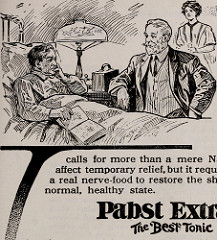Insomnia is a symptom, not a stand-alone diagnosis or a disease. By definition, insomnia is “difficulty initiating or maintaining sleep, or both” and it may be due to inadequate quality or quantity of sleep. Insomnia is not defined by a specific number of hours of sleep that one gets, since individuals vary widely in their sleep needs and practices. Although most of us know what insomnia is and how we feel and perform after one or more sleepless nights, few seek medical advice. Many people remain unaware of the behavioral and medical options available to treat insomnia.
Insomnia is generally classified based on the duration of the problem. Not everyone agrees on one definition, but generally:
symptoms lasting less than one week are classified as transient insomnia,
symptoms between one to three weeks are classified as short-term insomnia, and
those longer than three weeks are classified as chronic insomnia.
Causes
Insomnia may be caused by a host of different reasons. These causes may be divided into situational factors, medical or psychiatric conditions, or primary sleep problems. Insomnia could also be classified by the duration of the symptoms into transient, short-term, or chronic. Transient insomnia generally last less than seven days; short-term insomnia usually lasts for about one to three weeks, and chronic insomnia lasts for more than three weeks.
Many of the causes of transient and short-term insomnia are similar and they include:
Jet lag
Changes in shift work
Excessive or unpleasant noise
Uncomfortable room temperature (too hot or too cold)
Stressful situations in life (exam preparation, unemployment, divorce, or separation)
Presence of an acute medical or surgical illness or hospitalization
Withdrawal from drug, alcohol, sedative, or stimulant medications
Insomnia related to high altitude (mountains)
Chronic or long-term insomnia
The majority of causes of chronic or long-term insomnia are usually linked to an underlying psychiatric or physiologic (medical) condition.
Psychological related insomnia
The most common psychological problems that may lead to insomnia include: ,
anxiety
stress,
mania, and
depression.
In fact, insomnia may be an indicator of depression. Many people will have insomnia during the acute phases of a mental illness.
High risk groups for insomnia
In addition to the above medical conditions, certain groups may be at higher risk for developing insomnia:
travelers
shift workers with frequent changing of shifts
seniors
adolescent or young adult students
pregnant women, and
menopausal women
Medication related insomnia
Certain medications have also been associated with insomnia. Among them are:
Certain over-the-counter cold and asthma preparations.
The prescription varieties of these medications may also contain stimulants and thus produce similar effects on sleep.
Certain medications for high BP have also been associated with poor sleep.
Some medications used to treat depression, anxiety, and schizophrenia.
Other causes of insomnia
Common stimulants associated with poor sleep include caffeine and nicotine. You should consider not only restricting caffeine and nicotine use in the hours immediately before bedtime but also limiting your total daily intake.
People often use alcohol to help induce sleep, as a nightcap. However, it is a poor choice. Alcohol is associated with sleep disruption and creates a sense of nonrefreshed sleep in the morning.
A disruptive bed partner with loud snoring or periodic leg movements also may impair your ability to get a good night’s sleep.
Unani Treatment
Sheerah Khaskhas 10 ml
hareera magaz baadam
Rogan kaddo or rogan Baadam for application on scalp
Khameera Khaskhas 10 gm with sheerah Tukhm kahoo 10 ml two time
Sharbat Khaskhas 30ml with Arq Baid Musk 70 ml two times daily.
Tukhm Khaskhas 7 gm, Tukhm kahoo muqassar 4 gm, prepare sheera in Arq gau zaban 100 ml and use with Sharbat Khaskhaas 30 ml two times daily.
drizharnium@gmail.com, Bangalore India
Hi Friends, I am Izhar, love all of you, and I’d like to write about my interest, and here i am sharing about my opinion, prevention regarding to many diseases, maintaining views for Health, Beauty & Younger looking Secrets at article base…

